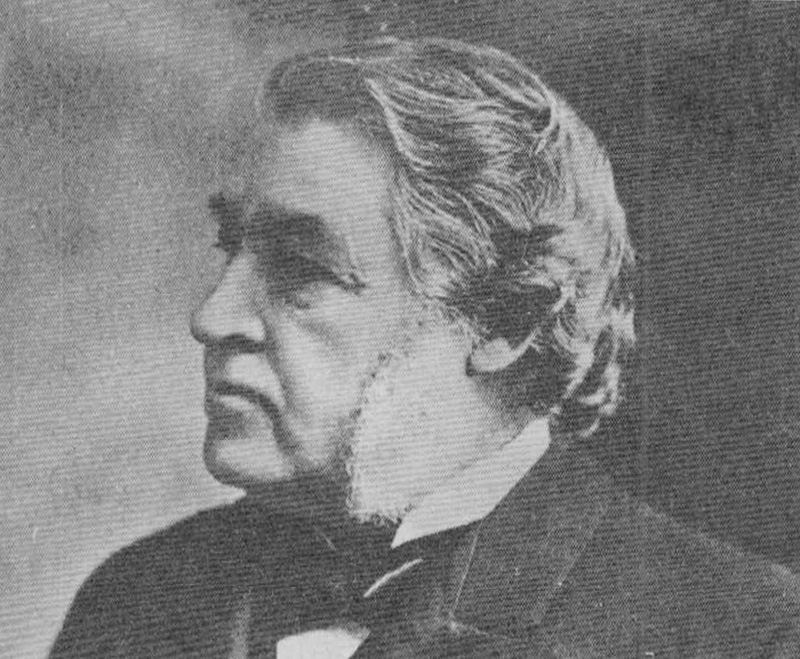
HISTORICAL EVENTS THAT TOOK PLACE ON THIS DAY IN CANADA
8 June

Sir Charles Tupper (1821-1915)
Last Session Begins
On June 8, 1866, Parliament began its last session as the Province of Canada. The next Parliament would be that of the new Dominion, but this was by no means certain on June 8, 1866.
In Nova Scotia, Premier Tupper carried a motion through the legislature authorizing his government to continue negotiations for a federal union. In New Brunswick, the anti-Confederation Smith government had resigned, and an election was in the offing. Actually, Smith was weakening in his opposition to Confederation, angry because the United States had refused to continue the reciprocity agreement made in 1854.
Clear Grit (Liberal) leader George Brown had left the coalition government he had formed with Taché-Macdonald, the deal that had won Macdonald's support for Confederation. Brown was something like Joseph Howe in Nova Scotia. Neither one could play "follow the leader." Howe had been one of the earlies1 supporters of Confederation, but was one. of its strongest opponents when Tupper became premier. Tupper had campaigned effectively against Howe when the latter was in the States, trying to recruit Americans to fight for Britain in the Crimean War. A friend asked Howe why he had turned against Confederation and he replied, "If you had a circus and had got together a good show, how would you like it if that fellow Tupper came and stood by the door and collected the shillings?"
Once Brown felt that Macdonald was fully committed to Confederation, he left the coalition as quickly as possible. From that time on he never spoke a civil word to the Conservative leader. Macdonald was puzzled and perhaps hurt. He said that during their brief association, which included a trip to Britain, they had dined and gone to public places together. They had even played euchre a good deal while crossing the Atlantic.
Brown did not weaken his support for Confederation. He contributed $500 to a $50,000 campaign fund contribution which Canada sent to the Confederation party fighting the election in New Brunswick. It won and Premier Tilley of New Brunswick and Tupper of Nova Scotia were able to go to London later in the year, to join Macdonald, Cartier and Galt in negotiations with the British Government.
OTHER NOTABLE EVENTS ON THIS DAY IN CANADIAN HISTORY
8 June
-1731 La Vérendrye and party left Montreal to explore the west.
-1789 Spaniards seized Meares' vessel North West America at Nootka, Vancouver Island.
-1790 King's College opened at Windsor, Nova Scotia.
-1824 Noah Cushing of Quebec obtained a patent for a washing machine.
-1832 The ship Carrick from Dublin arrived at Quebec with half its passengers dead from cholera.
-1859 Governor Douglas established the Supreme Court of British Columbia.
-1963 Prime Minister Pearson and American Ambassador Butterworth attended the 150th anniversary of the Battle of Stoney Creek (see June 6).